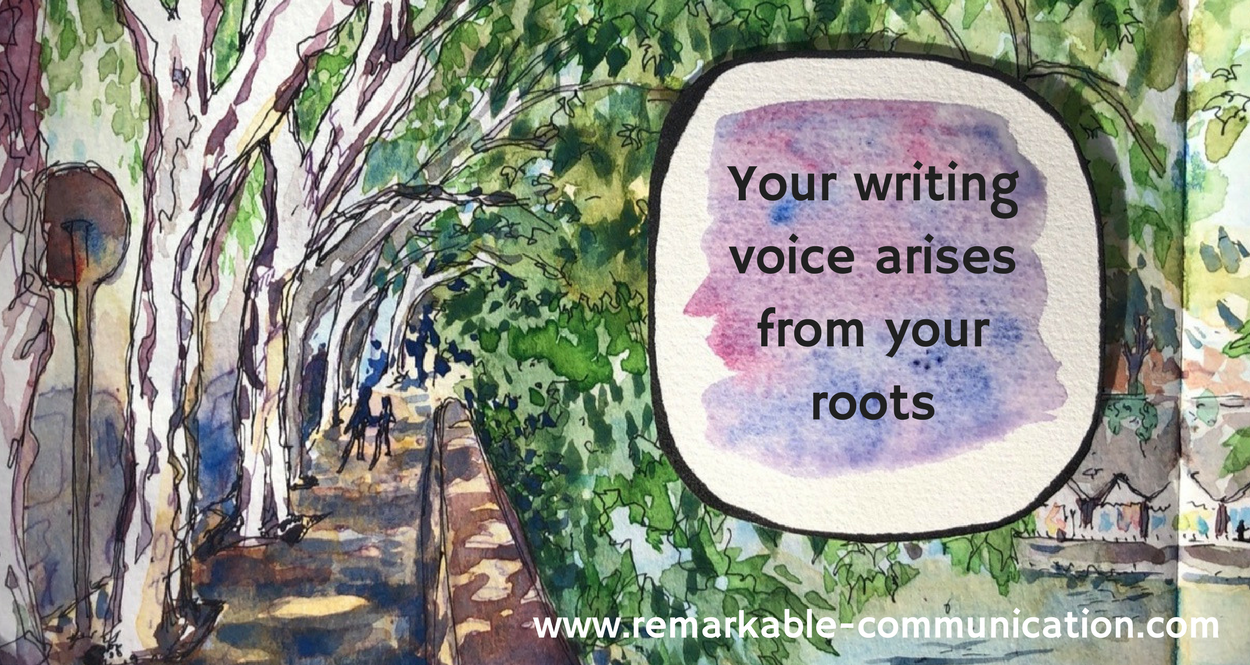 We had an interesting question come up in the Authority community, looking for resources to develop the “music” of writing:
We had an interesting question come up in the Authority community, looking for resources to develop the “music” of writing:
What’s the best way to make the words flow together? How can we create writing that has more artistic and creative power?
Obviously, that’s a huge question, and one that won’t get answered in a single blog post. But thinking about it got me thinking about the distinction between “art” and “craft” in any kind of creative work.
Where does art come from?
I think art is just the attempt to take the complicated and confusing mess that’s in one person’s head and convey it to another person.
Thinking about writing always makes me think about drawing and painting these days — so I ask myself, How does a drawing of a car happen?
An artist sees a car in the street, observes it closely, then chooses a drawing implement to move across paper, making marks that communicate her individual experience of “this car.”
Alternately, the same artist looks up a YouTube video on “how to draw cars.”
We think that the first one is valid and the second one is cheating, but we need both. That’s art and craft. They work together.
Your voice is everything you’ve seen, done, and learned
Your writing voice arises from your roots. It comes from your upbringing, your education, your temperament, your likes and dislikes.
It’s an organic result of the sum total of your life. And it will keep changing and growing as long as you do.
I can tell you some things I’ve learned about how to make words sound nice together. That’s craft — the equivalent of the YouTube video. And it’s an important part of the process. Not everything has to be won through hard experience.
But to try to master your art completely based on blog posts (or YouTube videos) won’t give you the most satisfying result.
Balancing art and craft can be frustrating, but it’s the good kind of frustrating, like defeating a hard level on a good video game, or reaching a relationship breakthrough with someone you really love.
It ain’t always easy, but it makes you feel amazing.
Practice, man, practice
“Excuse me, can you tell me how to get to Carnegie Hall?”
“Practice, man, practice!”
– a very old joke, indeed
A strong writing voice comes from both art (observation, communication, expression of life experiences) and craft (technique and “tricks of the trade”).
And both of them take practice. There’s no shortcut around the need for practice. If we want to get good, we need to put the time in.
Now, you could write sad clickbait for years and years and never get better at anything other than sad clickbait. The tricky part about creative practice is that we have to practice the things we aren’t good at yet.
Which can be deeply uncomfortable.
I could draw spheres and cubes all day long, and shade them nicely, maybe put some cool drop shadows in there. But that’s pretty boring. No one wants to look at it, and I don’t want to draw it.
Or I could draw things I’m not great at drawing yet, like dinosaurs, or window reflections, or hands. (Or cars. Cars are still hard for me to draw.)
There’s that painful gap — between the work we imagine in our heads, and the work that actually appears when we create.
Writers have it, painters have it, musicians have it — all creative people spend a lot of time in the gap.
Even worse, the more you learn, the more dissatisfied you get. So for awhile, it feels like you’re practicing more and your ability is actually getting worse.
No wonder there are so few artists and writers. No wonder people look at what we do and think it’s some kind of magic.
The magic part is sticking with it long enough to not suck quite so much.
In praise of cheerleading
Tara Gentile wrote an interesting piece recently about online business communities (like hers, which is excellent) being dismissed as mere “cheerleading.”
I don’t believe there’s anything mere about cheerleading. I think it’s incredibly important.
Mustering superhuman amounts of willpower to keep going when people are shitting on you might be admirable, but it’s not necessary to creative excellence.
You can be just as wonderful a writer (or musician, or painter) by simply going out and finding some love, support, and encouragement to get you through the stinky work days.
Stinky work days are inevitable. Being alone and sad while you go through them is optional.
A reader question about storytelling
Abby sent me a nice note asking if storytelling was going to be part of the new creative writing workshop I’m teaching for content creators.
And the answer is an emphatic Yes! However — how deeply we go into it will be something we decide together.
We’ll definitely talk about how fiction writers construct stories — with the powerful drivers of conflict and character. We’ll talk about how word choice can paint complex pictures with the fewest possible words. We’ll also talk about how to tell compressed stories in a memorable way — because content does tend to reward Those Who Get to the Point.
But if you want to go into some deeper topics, like complex plot structure or how screenplays have affected our story brains, that will be up to us as a group. I’m here to serve you, so it’s really going to be about what we collectively find most useful.
The imperfect remarkable writing workshop
The more work I put into the syllabus for the course, the more I realize that I’m going to have to launch with an imperfect version, so that we can create something remarkable together.
I still have a fair number of Is to dot and Ts to cross, but when I do launch this workshop (in a few weeks, I hope), I can promise you one thing with absolute certainty:
It will not be remotely close to perfect.
That’s one reason I’m calling it a workshop — we’re going to make it amazing together. And the folks who join me for this first version will get the later, fancier (more expensive) one for free. Because that’s just how things should be, in my opinion.
If you’re a stickler for perfection, you should sit this one out. But if you love messy creativity, I think you’ll have a blast.
Next week I’m going to talk a little more about the “craft” part of the equation. And then I think I’ll schedule a live session to try out a new webinar tool — and find out what’s on your mind as you’re walking your own creative journey as a writer.
In the mean time, you can drop your information below if you want to know when the class gets going — and hit me up on twitter (or email) if you have any questions or suggestions for the workshop! It’s tons of fun hearing from you.

I love “messy creativity” – can’t wait!
The only time I dabbled in fiction writing in any serious way, I belonged to a flash fiction writing group (writing full stories in 1,000 words or less), which taught me a lot about “telling compressed stories in a memorable way”. It also taught me a lot about being mentored and contributing to a group at the same time. It sounds like both disciplines will be useful for your workshop.
Cheers, Mel
I just happened onto your website by chance, or the powers of the universe, because i just keep reading! I love creating, and learning, and living. With all the mess, i ve come to realize that is inevitable and unavoidable, and will be there always. I have a curious love/hate relationship with laptops / IT, so i hope i will be patient enough to do this, since it is online. But i feel at the beginning of lots of beginnings, and words feel a bit untrustworthy, secretive and elusive to me often, like they know more than i do of what i am trying to say, or just make up their own mind, or something. I am looking forward to reading more about your course.
And thank you for your interesting website.
Sonia,
I’ve been following you since years – but it’s the first time I’m commenting here.
I agree with the fact that no matter who we are, our writing always has that ‘touch’ or reflection of others’ writing style. For instance, I read lots blogs. I admire the words people write. Then subconsciously, I write like them.
I don’t want to. I really feel like an unoriginal cheat. Then I realize that my words are mine. Even though I might have formed a few sentences like others do, and sprinkled some new adjectives, I’m myself in the end.
Yet, I’m still trying to find the part of which is real.
Every time I jot a sentence, I wish it says what’s within me – but without imitating someone else.
PS. A quick question: What do think is a good criterion to check whether a writer has found his or her genuine voice?
Hi Sonia,
I was hooked up till the end.
Fantastic, blog post.
My favorite line was, “Even worse, the more you learn, the more dissatisfied you get. ”
It does have a message in it. I can relate to this because when I fell in love with reading non-fiction books, it started impacting my life and business. Now, book reading has become a part of my daily life.
Secondly, there is a filmmaker named Peter McKinnon that I follow on YouTube. I heard him saying that he never gets satisfied with the final edit, but he puts it out anyway. It taught me a great lesson, and I realized what “done is better than perfect” really means.
Thanks for writing such a beautiful piece of content.